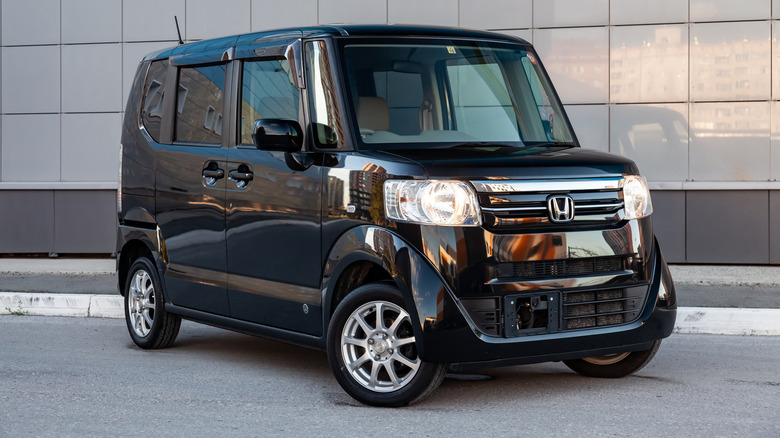Americans don’t like small cars. That’s an auto industry truism. But beyond that, Americans also like to make fun of the small cars that the rest of the world has, for the most part, embraced. Unfortunately, this balance of ridicule has been upset in recent years as Europe has retreated from the small, cheap cars that everyone who lives there used to drive. Stellantis Chairman John Elkann isn’t happy about this and, as Automotive News reports, is insisting that Europe’s governments slash regulations so that the teensy-weensy wittle vehicles can stage a comeback.
Elkann has a point. According to Automotive News, European automakers sold a million cars that cost less than $18,000 in 2019. Fast forward to 2025 and that number has been reduced to just 100,000, Elkann maintained. He blames a torrent of regulations that have added weight and costs, as well as gobbling up valuable engineering resources. The remedy, Elkann said, is a new generation of “E Cars” — Europe’s answer to Japan’s legendary kei cars.
Small cars aren’t as easy as they look
Small vehicles were an option for many years because they could be designed as basic transportation. Automakers could sell them in large volumes (like the aforementioned 1 million annually) and make up for low-to-nonexistent profit margins. They could also sell versions of these cars for decades, cutting way down on R&D investment costs.
But the last few decades have witnessed an upsurge in safety features in vehicles, alongside tech capabilities. Consumers obviously like this kind of thing, so carmakers feel compelled to include the goodies. The result is that profits are now impossible. The solution, as Elkann and Stellantis’ leadership envisions it, is to carve out a new category for heavily de-contented small cars that will be regulated in ways that are very different from larger vehicles.
They point to Japan’s kei cars, which are little putt-putt mobiles priced so cheaply that they provide a reasonable alternative to scooters and motorcycles.
Too many European plants and the China threat
China is effectively shut out of the U.S. market, so automakers there are greedily eyeing Europe and looking to come in strong with inexpensive vehicles. For the Chinese, this maneuver is imperative as the country’s auto industry is struggling with excess manufacturing capacity and needs someplace to export the extra cars.
But Europe also has excess capacity and would prefer to bring it back online to support employment at the levels the continent desires. A million “E Cars” built and sold every year would go a long way toward improving this situation. What’s awkward about all this, however, is that it repositions automakers as the saviors of the social good, rather than as profitable enterprises.
They’ve been here before: it’s oh-so Euro to look beyond mere capitalism. But Elkann’s proposal makes a lot of sense because it calls for a sensible reduction in regulations for a segment of cars that doesn’t need to be regulated at the same level as larger and more complex vehicles (regulators aren’t fond of such customizations, but they should adapt). That gives them a chance to post very modest positive margins. And there’s no better laboratory for this experiment than Europe, where citizens are still proud to own cars that are small enough to be ridiculed by Americans.





